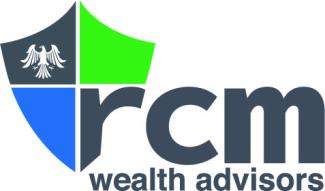
Economic Policies, Earnings, and Interest Rates
RCM Managed Asset Portfolio
By Christopher Chiu, CFA
December 2024
Economic Policies, Earnings, and Interest Rates
As we absorb what is happening with the Presidential election, we may overrate the effect elections have on the economy and the market. This is because accumulating the amount of political power needed to change the economy does not occur that frequently. When there is a sweep of the Presidency, the House, and the Senate, one party may have the power to enact their economic policy for a time. But over time, there are many elections, which give the opposing party opportunities to challenge, erode, or change the existing economic policy.
Economic Policy
There is no denying that economic policy can affect earnings and interest rates. As we saw in 2018, the Trump tax plan lowered the corporate tax rate and raised corporate earnings. In 2021 the Biden stimulus plan ran too hot and compelled the Fed to raise interest rates. But let me reiterate how hard it is to enact enduring economic policy. The Trump administration will try to dismantle as much as possible elements of the Biden economic plan. The Trump 2018 tax cuts will have to be renewed in 2025. It seems any economic policy is at risk every few years unless the party that enacted the policy remains in power to maintain and defend it.
Because economic policy is subject to change over time, the investment space does best when politics is left out of investing considerations. Not only are elections hard to predict and economic policy difficult to maintain, economic policy is not even the biggest factor of investment returns in a stable economy. The biggest factors instead are interest rates and earnings, with earnings being the most important factor because (1) earnings are specific to the individual asset, and (2) the investor can to some extent control the quality of the earnings through stock selection.
Earnings
I will explain the importance of earnings with a short allegory, where interest rates and economic policy should only be secondary considerations. It’s true economic policy can create the conditions to boost earnings. This is true of the Trump tax cut of 2018. It is also true in a country like Argentina, which is now undergoing economic reform. Economic policy is like a tide that can lift and push forward all boats. But America is not Argentina, a country where economic policy makes or breaks an investment. Here in the US, you can think of your stock investment as like a boat. It should be selected primarily because it has the power to navigate its own course. If there’s a favorable tide, it gets to the destination sooner. If there’s a bad tide, or bad economic policy, it creates wealth a little later. But it should be selected because it is still able to get to its destination regardless of the tide. An example of an investment that did very well against the tide was Berkshire Hathaway, which had some of its best years in the late 1970s and early 1980s when the investment environment was among the worse.
Interest Rates
In this allegory, interest rates can affect the value of an investment. Interest rates can be thought of as the speed of other, safer boats, such as bonds, that you can always hop onto if the waters get too choppy. (In this scenario, Treasury rates would be the speed of the slowest but safest boats.) If rates are high and the safer boats of bonds are moving faster than before, then more investors will opt out of the riskier equity boats because they can travel almost as fast and with more safety in bonds. The value of equities will diminish because fewer people will want to ride them. However, if rates are low and these safe bond boats are slow, then more investors will clamor for the lighter, faster boats, like growth stocks. These will be seen as more valuable because they give investors a chance to get to their destination faster. This is what happened with the bull market in 2020 as interest rates were pushed nearly to zero and growth stocks became more valuable.
However, interest rates have less of a lasting effect on investment performance than positive earnings. This is because interest rates are subject to change. The positive effect of lower interest rates will work for a time to push the value of equities higher. But as we have seen over the last few years, interest rates, which are set artificially low, will eventually return to a higher level and equities will consequently become less favorable as more investors jump back into bonds. Overall, interest rates can help equity values, but they can also harm them as well. Like economic policies, they are hard to rely upon, which is why it is usually best to put an investment’s ability to earn in the forefront of investment considerations.

